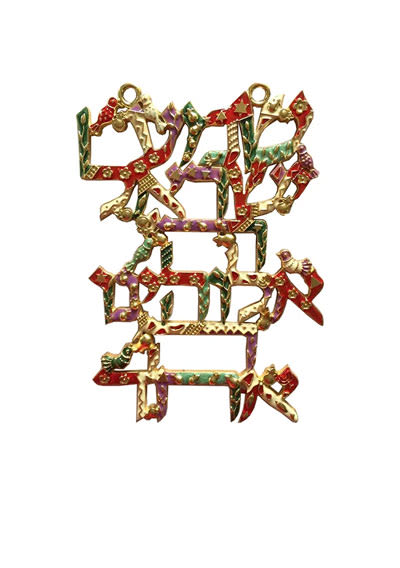
The BT (Baal Teshuvah) Bubble-Burst
Many Baalei Teshuva who are not honest with themselves experience nosedives; they fall into despair and depression, persecuting themselves for their mistakes. That can be avoided...

Hashem tells us that it’s OK if we have an evil inclination, for He gave it to us! Hashem wants us to recognize our evil inclination, to seek His help, and to call out to Him from our actual level, and not from some imagined or fantasy level that is not ours.
The Rambam teaches that he who builds his service of Hashem on a foundation of truth resembles one who builds a house on solid bedrock. But one whose Divine service is based on a lie is like one who builds a house in the sand – the structure will collapse as soon as a strong wind causes the sands to shift.
Many new BTs spend their personal prayer sessions telling Hashem fairy tales: “Hashem, open up the inner secrets of Torah to me! Hashem, help me be one of the true tzaddikim! Hashem, help me attain the 50th gate of holiness.” Their prayers resemble someone who wants to wear royal gold-embroidered outer garments of silk and velvet, but they haven’t changed their underwear or showered in the last two weeks. Change should first be inner, then outer. King David says, “Turn from evil and do good” (Psalm 34:15). If one ignores his or her true inner character traits in need of refinement, then ultimately, their teshuva process will burst like an over-inflated balloon.
Many BTs who are not honest with themselves experience nosedives and major disappointments. They fall into despair and depression, oftentimes persecuting themselves for the mistakes they make along the way. Even if their self-persecution is not right, it does show that they have a tiny flame of humility flickering from within. But then, when the BT succeeds, his arrogance overcomes the tiny flame and again he’s in  danger of ego over-inflation and subsequent burst. This yo-yo cycle is because they fail to be honest with themselves and neglect seeking Hashem’s help – courageously and candidly – in improving their inner dimension.
danger of ego over-inflation and subsequent burst. This yo-yo cycle is because they fail to be honest with themselves and neglect seeking Hashem’s help – courageously and candidly – in improving their inner dimension.
Over the years, I’ve seen many BTs who truly have done a fine job learning Torah and religious law; they’ve even improved their character traits and have learned emuna. Yet, they still have spiritual “crash landings” to the point that they retreat from the observant lifestyle. This phenomenon has a precedent in the Torah. Many of the Children of Israel, after having been saved from Egypt and bondage through tremendous miracles, later said, “Let us appoint a leader and let us return to Egypt” (Numbers 14:4).
How could this happen? The Children of Israel – back then and again today – didn’t realize that their new lofty level of spirituality was a Divine gift. As soon as they were tested, and their fantasized lofty self-perception was proved wrong, they fell into deep despair and disappointment, ready to discard everything.
The middle road, the road of truth, brings a BT to the cognizance that there is no one but Hashem, ein od milvado. This is the path where a person truly moves forward in Torah learning and mitzva observance. When a person does good, the bad falls by the wayside. But while a person must not dwell on the past, he or she must not ignore it either. Alongside doing good, they must beg Hashem in daily personal prayer to help them discard the undesirable habits, lusts and appetites of the past. Without extensive personal prayer, their negative character traits will stay with them until their 120th birthday. For a person to live truthfully and to find the golden middle path, he or she must devote daily time to probing self-assessment and requesting Hashem’s help.
King David tells Hashem, “For my transgressions I recognize, and my sin is before me always” (Psalm 51:5). King David never fooled himself; in his phenomenal humility, he held himself far beneath his true lofty spiritual level as Hashem’s anointed. We too need to be honest with ourselves. As BTs, we should realize that Hashem put us where we were so that we’d seek Him and correct what needs correcting. We don’t forget where we came from, according to the command of our sages (see Avot 3:1).
By knowing where we came from, we can set a proper and truthful course to where we want to go, without fooling ourselves. But if a person is not truthful, he or she will be embarrassed to tell Hashem what’s really on their hearts. They’ll lack what Hashem most wants from us, to seek Him in total truth. Hashem wants us to know and recognize our actual current spiritual state, so that we can improve and grow exactly from where we truly are. This point of truth utterly disarms the evil inclination.
Everything Hashem does is good. Even having an evil inclination is good, for it doesn’t allow us to be complacent; with it, we must seek Hashem’s help constantly. The evil inclination is the agent that forces us to strive so earnestly for proximity to Hashem, and that is good!










Tell us what you think!
Thank you for your comment!
It will be published after approval by the Editor.